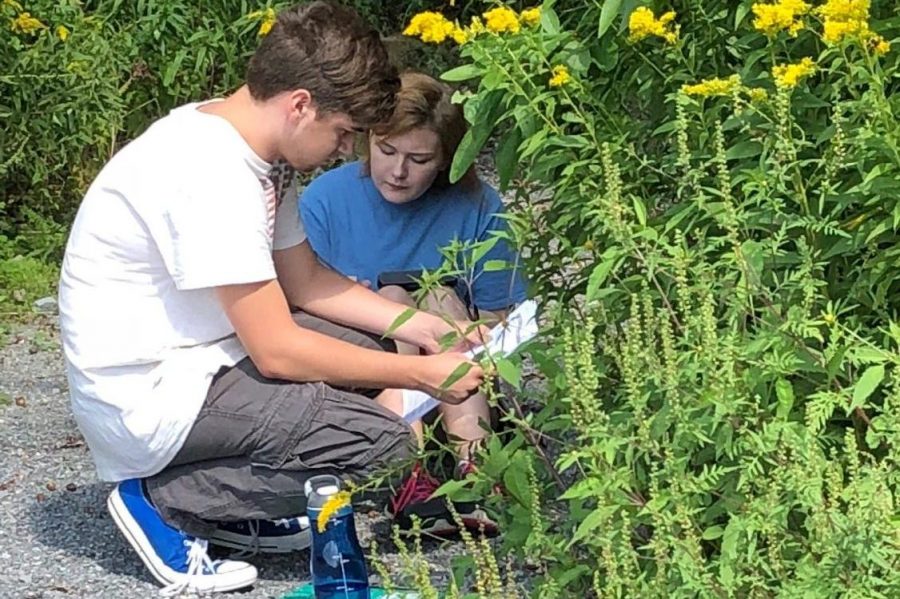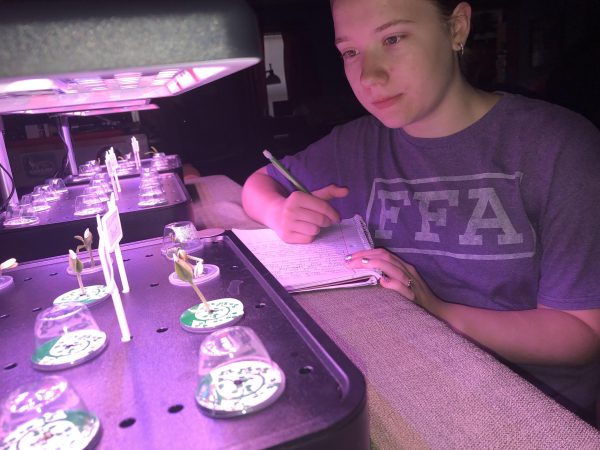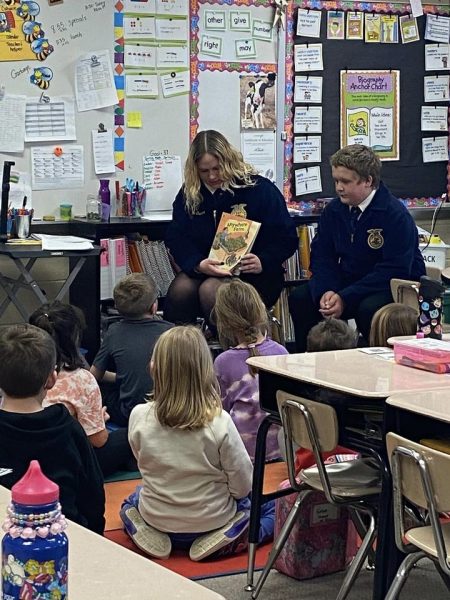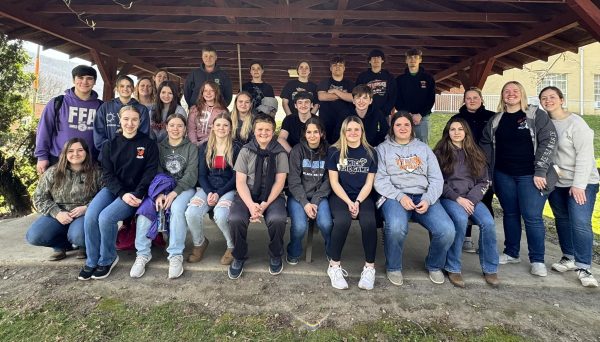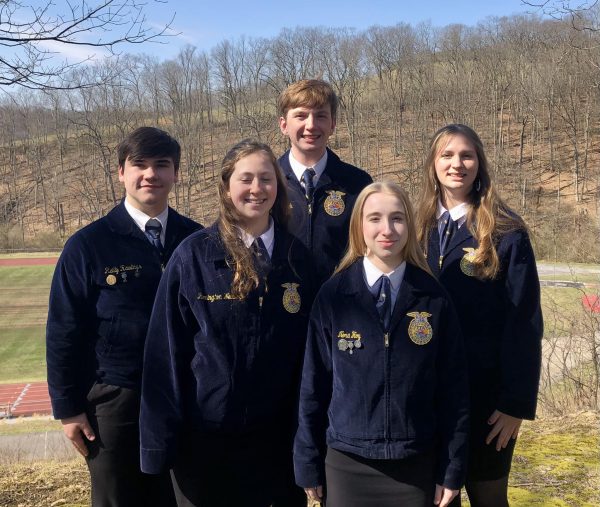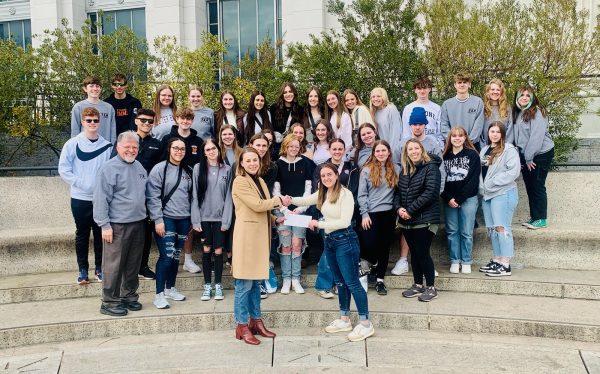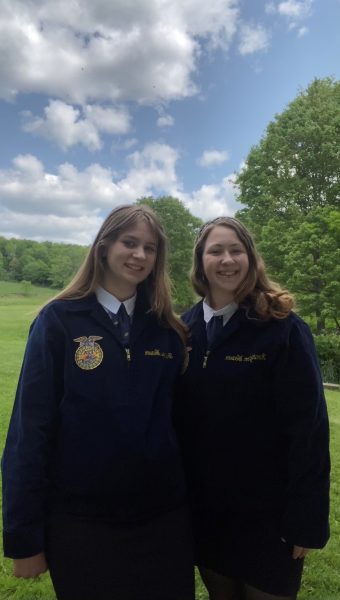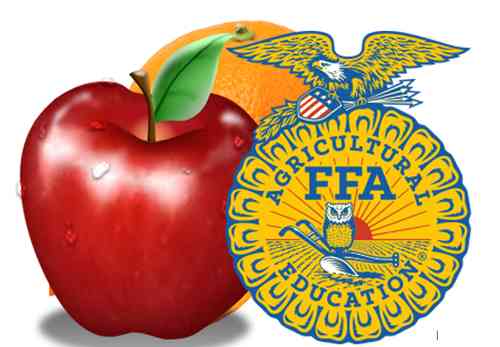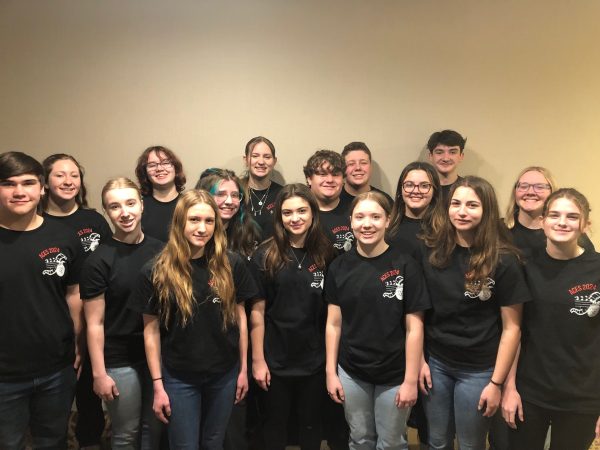FFA Making a Impact on Tyrone Area Students
Junior Breckin Peale and senior Allison Miller in the field doing experiments for an ag project.
Students who have not been enrolled in an agricultural class or have any knowledge of agriculture may think that FFA members are all farmers, but FFA is much more than just farming.
While some FFA members may want to work on farms to provide our nation’s food, there are many other job opportunities in other areas of agricultural science for students to pursue.
“FFA isn’t just a club, but a family that sticks together,” said sophomore FFA member McKenna Chronister.
FFA isn’t just a club, but a family that sticks together
— McKenna Chronister
Careers opportunities in agriculture are widespread, students could pursue a career in the science field, or in manufacturing, production, business or marketing. According to AgriGrowth, a trade group that tracks the agriculture industry, there are more than 22 million Americans working in over 300 jobs related to agriculture. That’s about 1 in every 5 working Americans.
These careers and industries impact FFA because one of the main goals of FFA is to teach leadership qualities. Members may enter into on the career pathways: Agribusiness Systems, Animal Systems, Environmental Service Systems, Food Products & Processing Systems, Natural Resources Systems, Plant Systems, and Power, Structural & Technical Systems.
“Although I am a first year member of FFA; I really have to come to enjoy it. We get to help each other, interact with the community and make new friends. I definitely will be back next year,” said sophopmore Morgan Garman.
The availability is increasing along with the population. According to the latest UN projections, world population will rise from 6.8 billion today to 9.1 billion in 2050 – a third more mouths to feed than there are today.
There are thousands of jobs being provided by the agricultural industry, and the impact of FFA tends to link them to the knowledge of industries. FFA helps shape the students into leaders that the career fields are looking for.
The students are taught to interact with other students, community, and other higher up officials at conferences. Although, seeming cliché the students are being taught to be better leaders of the future.
The students also are being taught that no matter what stage they are in within in their lives they are not alone. The program is there for them to fall back on.
Students get the opportunity of helping others even without the aid of an advisor. They become so close and open that the ag room is seen as a therapeutic place, and safe for anyone who has something to say. The overall most reassuring part of the chapter is that anyone fits in. School life can be hard, but the amount of variety in our chapter allows for everyone to work.
Each students carries their own impact and part to this chapter and are valued for the unique characteristics.



